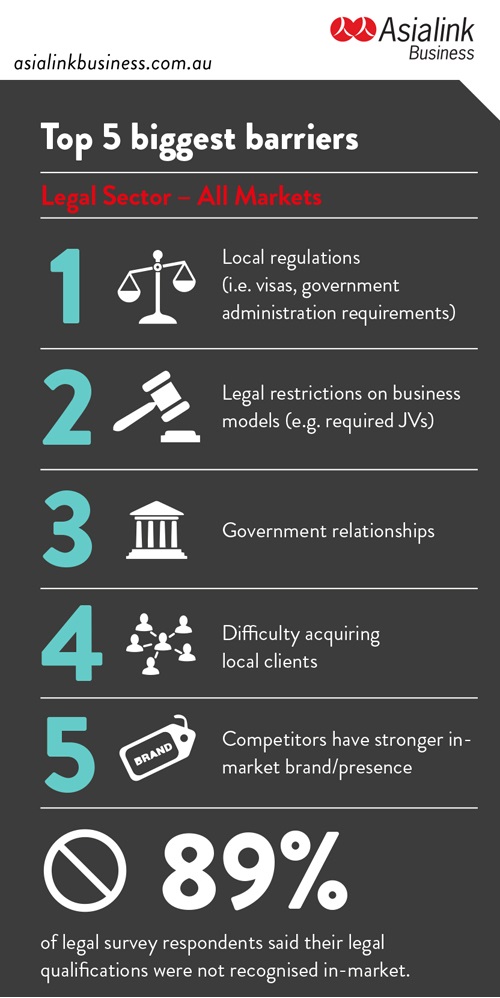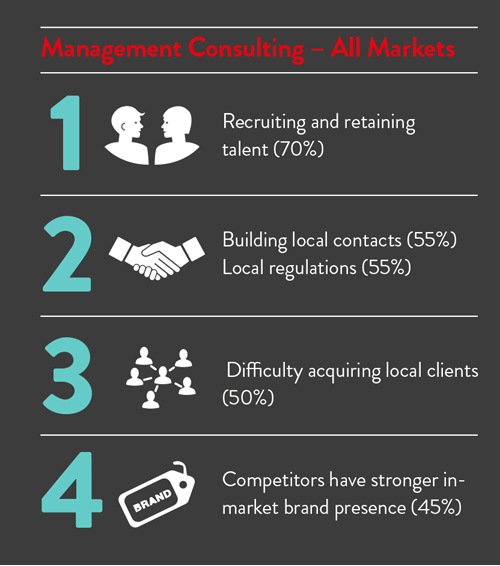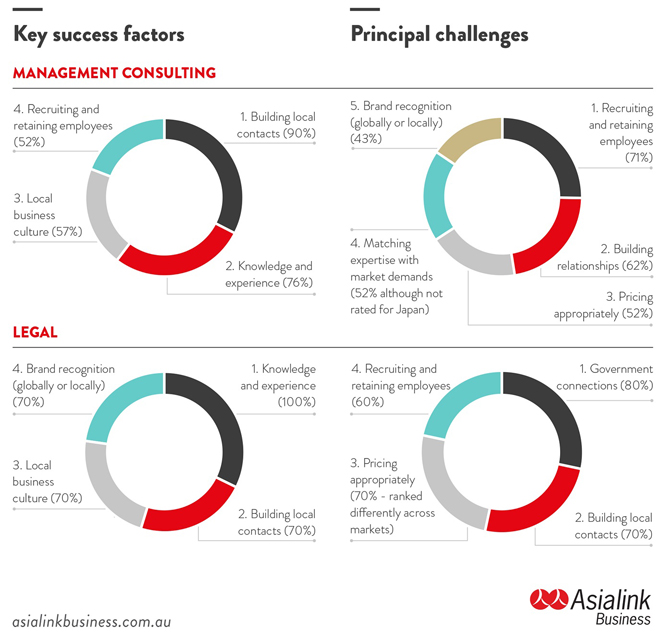Published 16 June 2016
Across Asia, the need for knowledge-based services is expanding exponentially. With the region’s burgeoning middle class set to grow from 500 million people today to 3.2 billion people by 2030, the total market for services is growing quickly, particularly accounting, legal and advisory services – industries in which Australia has developed global capabilities.
Yet despite the sizeable opportunities, the export of professional services to Asia remains relatively low. In fact, it accounts for less than half of Australia’s total business services exports to the rest of the world.
New research commissioned by Austrade and conducted by Asialink Business investigates the potential for Australian business to help grow Asia’s knowledge economies.
While the research looked at management consulting and legal services in four key markets - Singapore, Indonesia, Korea and Japan - it revealed key insights for professional services firms seeking to capture broader opportunities throughout Asia.


And while many of these opportunities are ripe for the taking, the research revealed they are not without challenges –from overcoming regulatory constraints, to managing and retaining local talent, pricing appropriately, building brand recognition and forging relationships with local governments and clients.
So what can businesses do to maximise their success? Here are five insights from the new research.
• Offer a niche
Especially when competing against larger, more generalist firms, operating in a niche area and drawing on existing capability is proving to be a key competitive advantage in various Asian markets.
In Indonesia for example, the drive to attract international investment in agriculture, energy and infrastructure is fuelling demand for legal, financial and management consulting services. Firms with existing expertise in areas like mining and agribusiness are well placed to capture these opportunities.
One research participant summed the challenge up as need to “identify what your [firm] is good at, then align this to the market’s needs.”
• Capture Asia-bound business
For many Australian and New Zealand professional service firms new to Asia, getting started can appear daunting.
One of the best starting points can be to work with local clients that are themselves expanding into Asia, to capture their business before they make the move offshore.
Capturing business at home provides the added benefits of developing long term connections and networks in different Asian markets.
• Use a springboard to expand regionally
For many of the most successful professional services firms, launching a business in one Asian market has served as a springboard to regional expansion.
The firms involved in the research said repeat business and referrals were essential to growing their business: over 80 per cent said operations in one Asian market fuelled further opportunities elsewhere in Asia.
With its world class infrastructure, excellent connectivity and strategic location, Singapore has emerged as a popular gateway. By using Singapore as a ‘hub and spoke’ centre, firms that make the move here are attracting international clients, and gaining additional business when clients require services in other markets, like China, Korea, or elsewhere in ASEAN.
• Make the most of FTAs
Australia’s recently signed free trade agreements, such as the KAFTA (with Korea) and the JAEPA (with Japan), as well as longer standing agreements with Singapore and ASEAN, are creating greater market access for services firms in wide-ranging industries.
Under the trade agreement with Japan, for example, Australian service providers are guaranteed access to Japan’s sizeable and highly-developed market.
Financial services providers can supply a clearly defined list of products to Japan on a “cross-border” basis. And Australian law firms can now establish entities under Japanese law, and benefit from fast-tracked registration processes.
• Fly in fly out is in decline
One important theme to emerge from the report is the decline of fly in, fly out business. With the exception of Indonesia, participants in Korea, Singapore and Japan observed that establishing a permanent presence in market was a more successful business model.
This takes investment, long-term strategy and patience.
It also requires a dedicated commitment to building Asia capabilities – the skills, knowledge, and networks needed to understand Asian clients and customers, build trusted relationships and negotiate to achieve mutual gains.

Competition intensifies
Just as it’s important to be in it for the long term, for professional services firms considering Asia, it’s also essential to get started soon.
The playing field is becoming increasingly crowded. Competition is intensifying not only from British and US firms but increasingly from smaller professional service providers from countries like Russia, Canada, China and elsewhere within Asia.So for Australian firms considering cracking into Asia, the message is clear: the sooner you make a start, the greater the competitive advantage and the opportunity to leverage your firm’s niche expertise and strengths to help grow Asia’s knowledge economies.
Megan Mulia is the Director of Research and Information at Asialink Business, the National Centre for Asia Capability.
